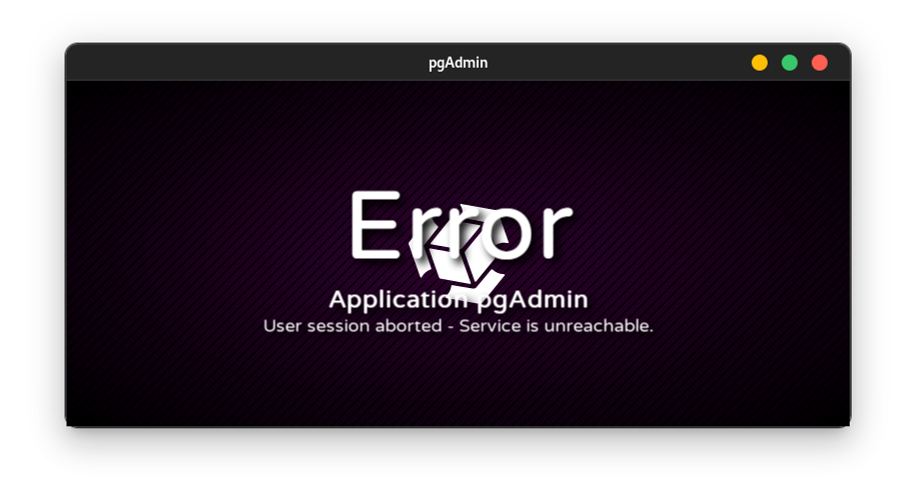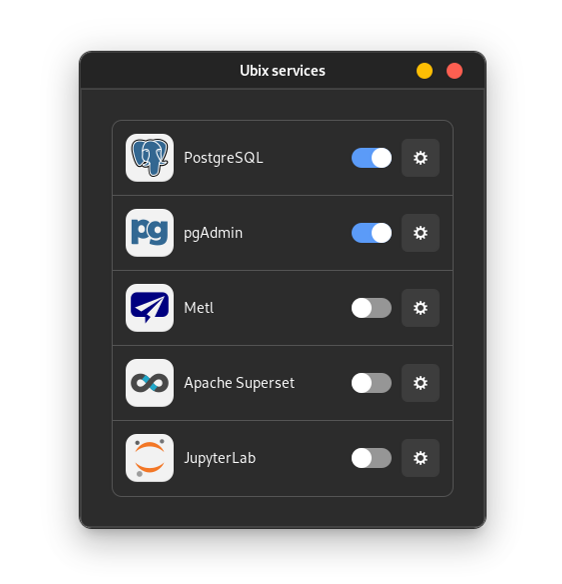You probably like to get straight to the point. Like many people, you like being able to get started with a product before reading a single word of its documentation. It may also be that you simply don't need it. Anyway, grab the keys and open the doors…
Opening the box
Main tools and applications offered by default in Ubix Linux have icons in the dock.
| Tool | Usage |
|---|---|
| pgAdmin | Administration tool for PostgreSQL RDBMS |
| Jumpmind Metl | Data integration tool |
| Apache Superset | Data exploration and visualization tool |
| JupyterLab | Interactive data science tool |
| Mozilla Firefox | Web browser |
| LibreOffice | Office productivity suite |
| GNOME Files | File manager |
| GNOME Terminal | Terminal emulator |
| Ubix Services | System administration tool |
Lauching apps
Simply click on one of the dock icons to launch the corresponding application. However, you may need some credentials to use some of them.
| Tool | User | Password |
|---|---|---|
| pgAdmin | pgadmin@pgadmin.org | pgadmin |
| PostgreSQL1 | postgres | postgres |
| Apache Superset | superset | superset |
| JupyterLab2 | jupyter |
Notes
1 The PostgreSQL RDBMS is either managed using its pgAdmin graphical interface or using its command line interface (via the GNOME terminal). It comes preconfigured in Ubix Linux. The "postgres" user was created for the "localhost" server which delivers the "postgres" and "northwind" databases by default.
2 JupyterLab does not require a username but a password.
First troubleshooting
Sometimes, when running on a limited or heavily loaded configuration, you may encounter some difficulties to start some of the applications you can find in the dock. An error as shown below may occur.

The first workaround is to close the application by clicking on the red button in the title bar and relaunch it. If this is not enough, you can limit resource consumption by reducing the number of active application services. You can enable and disable these services using the “Ubix Services” application and its toggle buttons.

Once finished, try relaunching the affected application. If that's still not enough, consider adding RAM and/or CPU to your setup.
Next
Now you're ready to start getting the most out of your data.
Depending on your level of technical knowledge, you can follow our progressive tutorial course, or deepen your mastery of each tool by reading the other articles available in the documentation.